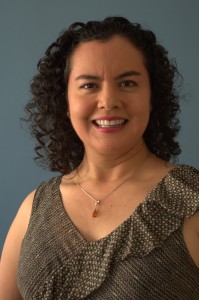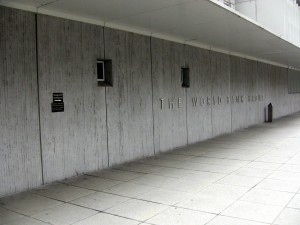
At the Center for International Environmental Law, we are part of a small community known as watchdogs. While this calls to mind frightening beasts lurking in dark places, we embrace this role. It’s a job that we have been taking seriously for more than 25 years.
Today, we are bringing our special brand of legal knowhow for a final showdown: a three-day face-to-face with the World Bank, going deep into the rules that govern project loans from their initial conception, all the way to completion.
As ever, we will be vigilant and vocal about the importance and centrality of designing, assessing, and approving projects that benefit and enhance people’s livelihoods around the world.
Consultations of varying duration, participation, and success have taken place in 30 countries so far. From the beginning, CIEL has led the call for open, inclusive, and meaningful participation, working closely with the US Treasury Department, which has a role in ensuring consultations fulfills those requirements. This three-day consultation in Washington, DC is one of the last – a significance not lost on any of us – to take place in this long and complex process to improve and strengthen the World Bank’s policies. (The final consultation will be held in Brazil in early March.)
CIEL committed to this reform process in 2012, and it has been a long, exhausting road to get to this point – a road littered with obstacles, detours, and Bank officials more concerned with moving high volumes of traffic (aka investments) than ensuring the roads are well-designed and safe (aka have strong policies to protect people and the environment). Since 2012, we have spent countless hours reviewing the intricacies of World Bank’s policy and its implications for the peoples and communities that the benefits of these development projects are designed to reach. We have sat in hundreds of meetings with fantastic, inspirational partners from around the world to discuss how to improve and build upon the draft policies put before us. And we have ultimately envisioned, penned, and put forward a myriad of recommendations, concerns, and suggestions to ensure that the World Bank has clear and enforceable standards that guarantee compliance with international law to protect communities and the environment in the future.
We are more than ready for this three day meeting; we have been preparing for years.
While the consultation period will officially close on March 15th, it is still not the finish line. The final decision on changes and improvements will depend on the management and Board of Directors at the Bank. They have a difficult task ahead, but rest assured that we watchdogs will doggedly continue to push, demand, and make the case for a system that may truly improve livelihoods for those who need it most.

Read more: CIEL Comments on the World Bank Second Draft ESF
Originally posted February 22, 2016
